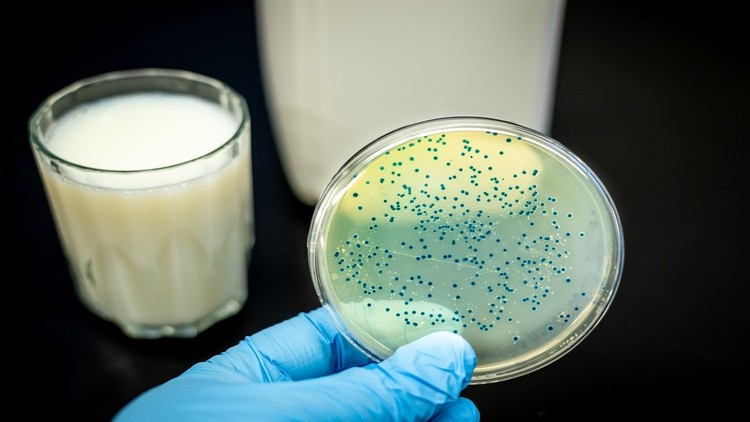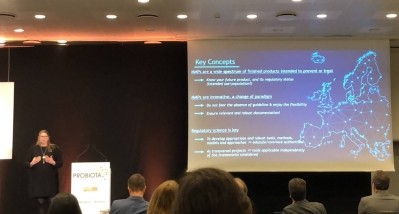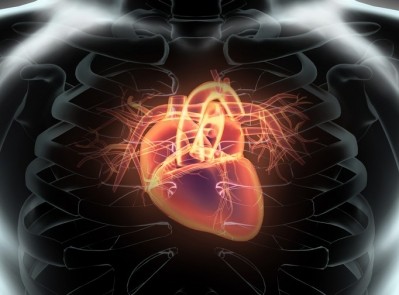The war on obesity could be won by bacterium originally isolated from cheese, an expert says

The discovery journey of Hafnia alvei from the first epiphany to the market was brought to life by Pierre Dechelotte, a Professor of Nutrition, at Probiota.
Coincidentally Hafnia was the Latin name of Copenhagen and having been first discovered there, the strain bears its name. This is where Decehelotte who was taking part in the three-day conference addressed a room full of probiotics experts from around the world to explain its role in weight loss.
Dechelotte, who is Director of the INSERM 1073 Laboratory and has worked alongside Centre Hospitalier Universitaire de Rouen and TargEDys told of the complex interrelations at play between nutrition, the microbiota and the brain.
“Obesity is steadily increasing worldwide, and, in many countries, we can see the prevalence has majorly increased during the last 20 years – this is probably in relation to the microbiome,” he said, "in France people who were overweight became obese, people who were obese grade 1 became obese grade 2, and so on. and so the objective to contain the obesity epidemic is to act as soon as possible on these people, we are trying to help them not to become overweight, and at the very least not shifting to becoming obese."
He believes action needs to take place now and highlighted the tight relationship with eating disorders and neurobiological disturbances.
“The whole pattern of eating disorders has increased so much, specifically in countries like Japan and France where they have previously been absent,” Dechelotte comments.
“We screened 3,000 students for eating disorders in May 2021 just after the pandemic and it has steadily and massively increased with the most common being binge-eating.”
Dechelotte said this was among the many reasons they felt within their research group that they had to get a better understanding of eating behaviour.
“At the same time, there was also this new interest of the microbiome in general – so we wanted to decipher the role and the therapeutic potential of gut microbiota for eating disorders and for obesity - to try to bridge academic research to patient care. We decided to develop these as a probiotic to treat overweightness.”
The researchers were keen to show in a preclinical model that the product was able to reduce body weight and fat mass and EnteroSatys finally went to clinical trials.
A paper was published in International Obesity Journal that showed two different models of obesity in mice and how Hafnia was able to slow down the progression of obesity, was efficient compared to the placebo in reducing body weight and helped to reduce food intake.
“We then had enough conviction to go ahead with a clinical study and that was done over the last two years with a standardised protocol – a randomised, double blind placebo controlled multicentric trial.”
More than 200 overweight subjects without insulin resistance, no diabetes, no stenosis or proven non-alcoholic steatohepatitis (NASH) were recruited and instructed to consume 20% less of their usual diet and they received two capsules of Hafnia alvei or a placebo for 12 weeks.
“The primary endpoint was the proportion of subjects achieving a 3% body weight loss over 12 weeks and we had several secondary endpoints such as changes in body weights either in kilos or achieving 4% weight loss, hip circumference and feeling full,” the study concludes.
“We could also see a slight but significant decrease of fasting glycaemia and cholesterol in the treated group compared the placebo.”
The studies showed Hafnia alvei is able to produce Caseinolytic peptidase B, a protein mimicking the hormone of satiety alpha-MSH, and to reduce food intake in murine models of obesity. Although isolated from cheese made with raw milk, it is also naturally present in human intestinal flora but this has no influence on the allergens that might be in EnteroSatys and it contains no lactose, no trace of milk or its by-products.
Dechelotte summarised his presentation by saying that feedback included good tolerance and long-lasting effects with some people experiencing additional weight loss.
"EnteroSatys was given an award by Nutraingredients and I think we will be considered as an example of next generation probiotics coming from a target-based scientific approach upwards, to deliver the development of some clinically applicable products that retain the mechanism of action that has been identified at the early stages of research.”
















